As a forces-friendly organisation, SOCOTEC has a proud and longstanding history of supporting the military, from ensuring the safety and compliance of army premises to establishing a tailored employment pathway for veterans via the Career Transition Partnership.

Having signed the Armed Forces Covenant in 2020, SOCOTEC has since further strengthened its commitment to serving personnel, Reservists, veterans, cadets and military families, ensuring that they are treated with fairness and respect in all aspects of their lives.
To celebrate Armed Forces Week – taking place from Monday 21 June to Sunday 27 June – we spoke to five ex-military employees about their time within the Armed Forces, focusing on how the knowledge, skills and experience they acquired have translated to their current role within SOCOTEC.
Danny Coomber, director (Consultants)
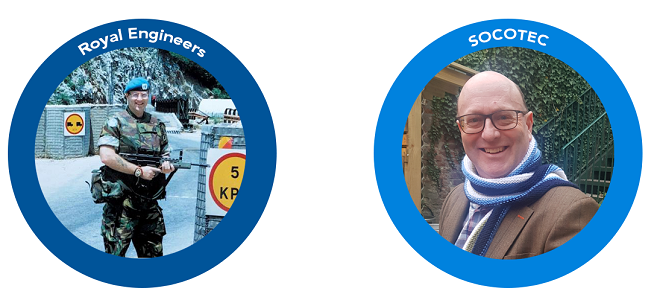
Can you tell us about your time within the Armed Forces?
I joined the Royal Engineers in Dover as a junior leader on October 18 1979, before transferring to man service at the end of 1980. I was sent to Germany on my first official posting aged 17 and a half, kickstarting a career that would span 23 years. While I served in BAOR (British Army of The Rhine) and the UK on my actual postings, I completed tours in the Falkland Islands, Kenya, Gibraltar, Hong Kong and Bosnia.
Many will be surprised to learn that the army has no structural engineers, architects, project managers, facilities managers, construction managers or quantity surveyors – instead, they use their clerk of works. From 1990, I trained as a military clerk of works (construction), where I was a jack of all trades and a master of some. By my final year of military service, I had achieved Warrant Officer Class I (the highest non-commissioned rank), having completed what is considered to be a full career for a soldier. I was selected for a commission as a Captain in 2003, but it was at this point that I decided to see what the commercial world had to offer.
How did you find the transition from the military to the consultancy sector?
The transition from the military and into civilian life was relatively straightforward, as I already had various degrees of experience in most construction-related disciplines. The only area where I found I was lacking was in terms of my commercial, sales and marketing experience. Most ex-forces personnel move into businesses that focus on budget management as opposed to generating sales, and the aspect that I found to be disappointing was gaining the relative experience required to transition into the commercial world. Soldiers are highly trained, have plenty of technical skills and sharp tools, yet they do not often receive the work experience required to transition into more commercial-based roles.
How have the skills that you acquired within the Armed Forces equipped you for your current role at SOCOTEC?
Dealing with people is a skill that you quickly acquire within the military yet often take for granted. Over the course of my career, I became interested in what makes people tick and got myself trained and qualified in human behaviour change work. This sparked a whole new interest for me, with psychology and philosophy now strong passions of mine.
In my current role, I direct multi-discipline consultancy services and class myself as a ‘can do’ individual – an attitude that I have certainly adopted thanks to my time within the military. If there is a job that comes my way and needs to be done, I don’t like to say no, and I can usually find a way to get the service delivered. Thanks to my multi-sector experience, I have a strong network of colleagues comprising a mixture of ex-army personnel with similar skills to myself, as well as the many professionals I have come across over the last 18 years of my post-military career.
Linda Matthews, learning and development manager (Central Services)

Can you tell us about your time within the Women’s Royal Naval Service?
I joined the Women’s Royal Naval Service (WRNS) in January 1980 as a dental surgery assistant, where I served for eight years. During that time, I was based in HMS Drake in Plymouth, HMS Raleigh in Cornwall and BRNC (Britannia Royal Naval College) in Dartmouth. I didn’t serve at sea, but I did work on ships with a portable dental unit in the ship’s sick bay, working with the dental surgeon and treating the ship’s crew. We took the dental department to them as it was a more efficient and targeted approach, ensuring that the crew were dentally fit before setting off to sea for several months’ deployment.
How have the skills that you acquired within the WRNS proven useful within your current role at SOCOTEC?
During my time with the WRNS, I gained so much confidence by working with great people. I was constantly learning new skills and worked to set standards, so I knew exactly what I was doing and why I was doing it. The navy was also a great way to meet new people and build professional relationships quickly. I was always interested in how people behaved and how this required me to flex my working approach in every situation, which is why HR has always been a sector that has interested me.
I quickly became used to working to set standards, placing my trust in the people that I worked with. This has transferred into my current working life, as I am able to help ensure that the colleagues I am supporting have the best skills and knowledge to get things done and on time. In turn, I set myself high standards and became skilled in working to tight deadlines. Being able to build and maintain strong working rapports was another skill that I cultivated during my time with the navy. In the WRNS, everyone works as one team, supporting one another and striving towards the same goals, and I am proud to have maintained these values over the course of my career.
Dan Coen, managing director (Infrastructure)
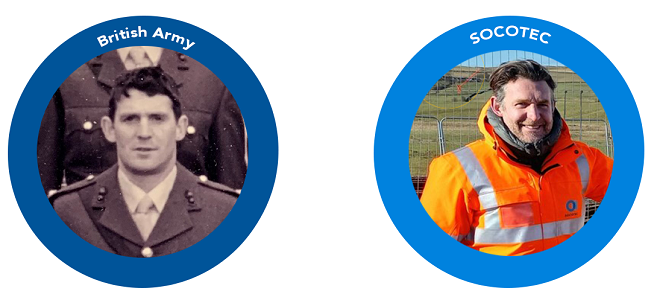
Can you tell us about your time within the Armed Forces?
I served six years in the British Army in total. After commissioning from Sandhurst, I spent a further year training to be a royal engineer officer, where I then deployed to Northern Ireland as a troop commander in 1998. My main role was to lead the decommissioning process of high profile watch towers and observation posts on the border/in Belfast City as part of the Good Friday Agreement. I then spent two years as a training officer at the Minley Engineering School, preparing young soldiers for life as a royal engineer and supporting promotion assessments for Junior NCOs as they advanced through the ranks.
How did you find the transition from military life into the construction sector?
The transition away from the military and into the construction industry posed a variety of unique challenges. I liked the structure and consistency afforded by army life, so the initial change into a brand new sector was tough. However, in many ways, construction and infrastructure offer many similarities to the Armed Forces. Both sectors are full of talented, hardworking individuals who are driven and passionate about what they do. In fact, one of the most enjoyable aspects of my role as managing director is the privilege of working alongside talented teams who pull together to deliver and exceed our objectives.
Philip Walker, operations manager, Energy and Oils (Environmental Science)
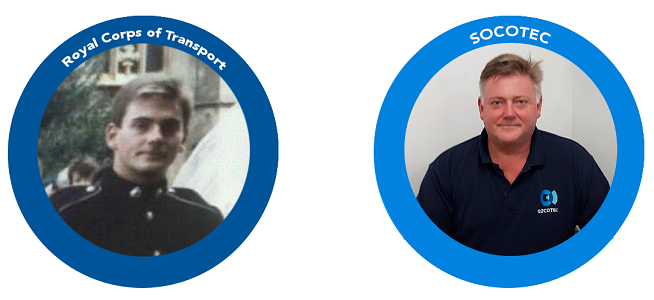
Can you tell us about your time within the Armed Forces?
In 1984, I enlisted as a boy soldier in the Junior Leaders Regiment, Colerne, Royal Corps of Transport, where I trained as a driver, radio operator, clerk and movement controller.
My role required me to be able to manage logistics by road, rail, sea and air, coordinating the movement of people, equipment, vehicles and dangerous goods. In total, I served for just short of 24 years.
How have the skills that you acquired within the Armed Forces proven useful within your current role at SOCOTEC?
After leaving the Armed Forces, I spent 12 years working as part of the logistics team at Drax Power Station, where I was part of the team responsible for the management of supply chain and logistics, as well as carrying out sampling and analytical services. I worked closely with SOCOTEC during this time, which enabled me to take the next logical step in my career (moving into renewable energy testing and analysis). The ability to deal with and prioritise multiple issues in a highly pressured environment prepares you for pretty much any operational position, and the Armed Forces was fantastic at providing me with the training and resilience required to carry out my current role as operations manager for SOCOTEC’s Energy and Oils teams.
Matthew Thomas, senior technician, Water Treatment & Equipment (Safety Compliance & Sustainability)

Can you tell us about your time within the Armed Forces?
I was part of the Royal Engineers for five years, completing basic training at Pirbright Barracks in Surrey, before moving on to Minley Barracks to complete my engineer’s course (B3). This comprised all sorts of training, including combat engineering, construction, demolition, the use of specialist power tools, bridge making and WATER supply. I then completed my trade training, which required the use of specialist communications equipment, as well as driver training for both Class 1+2 HGV licences.
Following this, I spent nine months at Chivenor Barracks, North Devon, before moving on to Waterbeach Barracks in Cambridge. I was then assigned to serving a seven-month tour in Afghanistan as an infantry escort for a bomb disposal team, which required me to carry out such tasks as handling heavy explosive equipment and making explosives for the No.2 operator.
How did you find the transition from military life into the water treatment industry?
I left the Armed Forces in 2013 and must admit that transitioning to civilian life was somewhat challenging. However, I can say with confidence that my time in the Armed Forces made me who I am today and changed my outlook on life. I was very unsure as to what I wanted to venture into that related to all of the training and experiences that I had gained during my time within the Armed Forces. I had mentioned to a friend that I had completed a WATER course as part my military training, and I was lucky enough to get into the water treatment industry through this connection. A career within the water industry proved particularly appealing to me as, much like the military, the work involved requires a technically minded approach, in addition to the fact that no two days are the same.
During my time in the army, I thrived whenever an opportunity presented itself to improve my performance and enhance my knowledge, and this is something that I have carried with me into my current role as senior technician. While I have gained new and invaluable experiences within the water treatment industry, the knowledge and skills that I acquired within the Armed Forces (such as leadership and problem solving) have provided me with more opportunities to enhance my knowledge and move up the career ladder.
Have you served within the military sector and are looking for your next career move?

You might also like


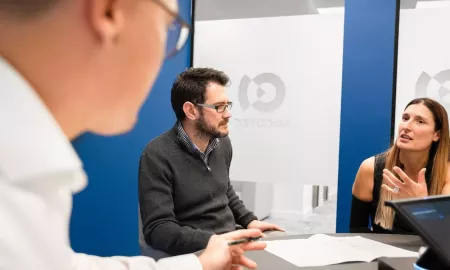
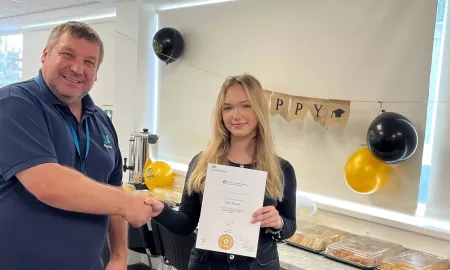
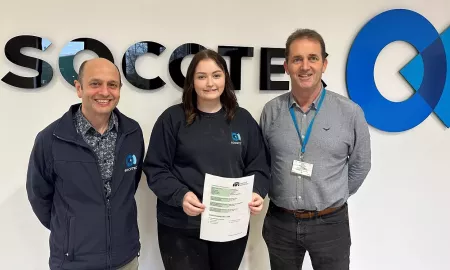
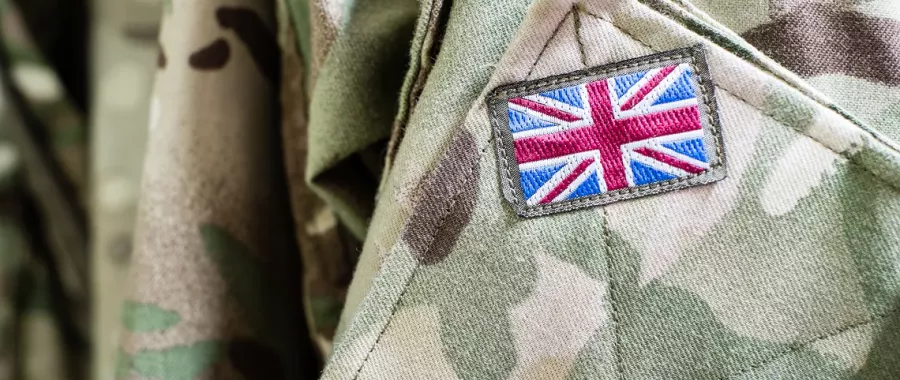
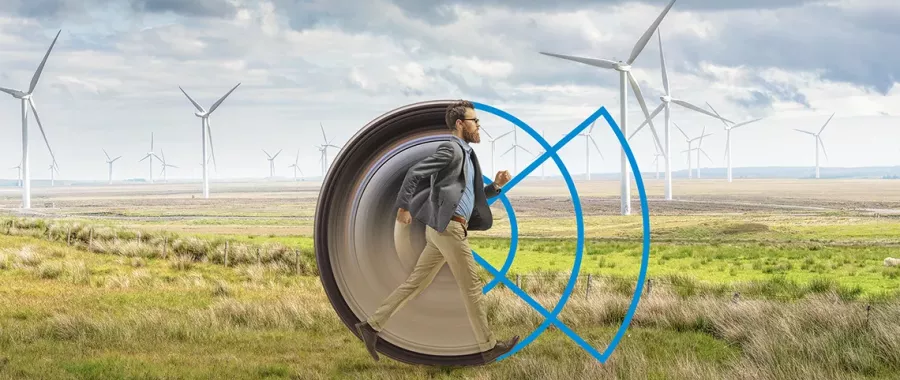
Add new comment